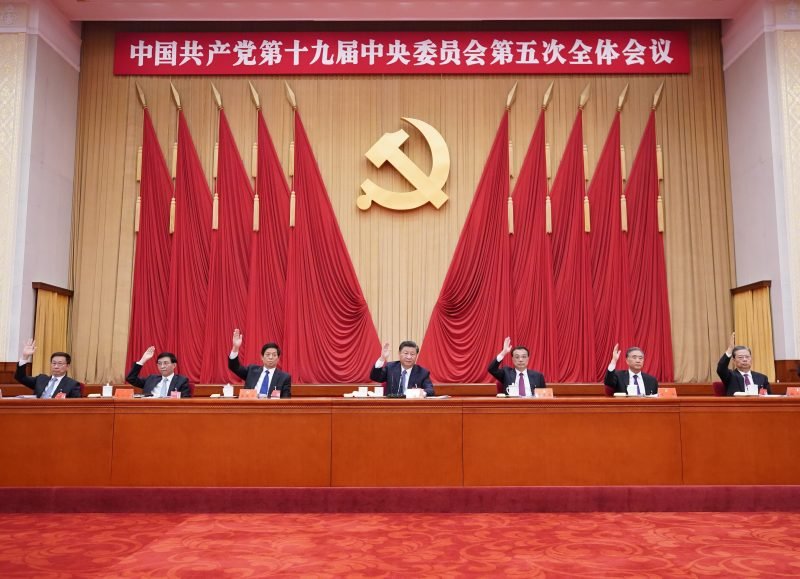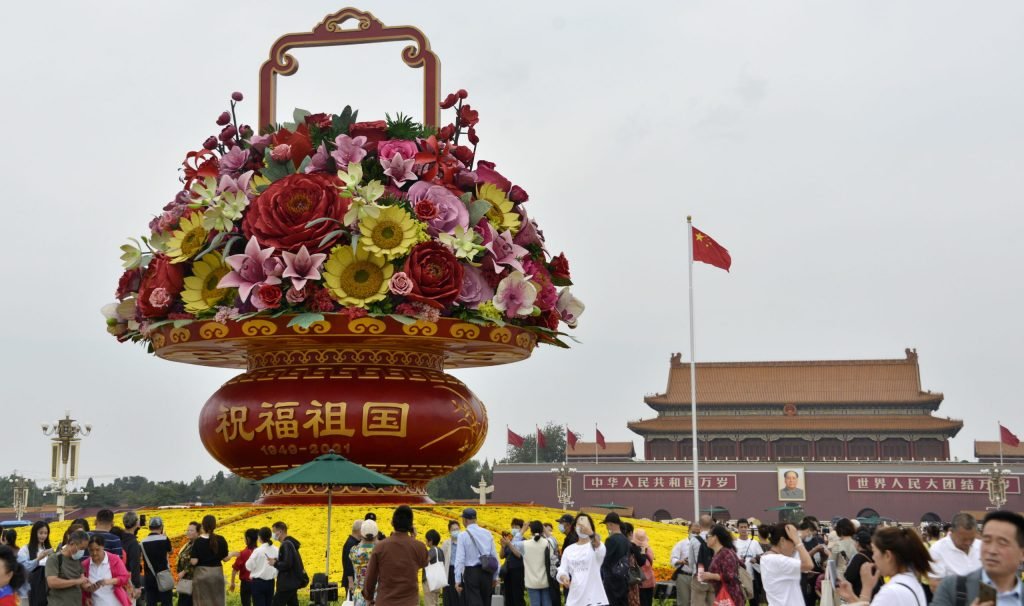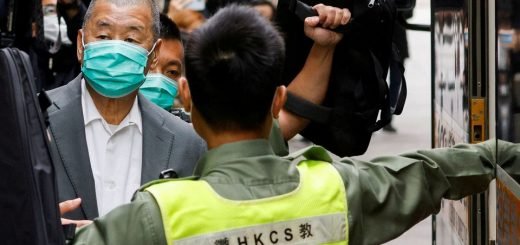Xi Jinping: focus of China’s Sixth plenum

At the conclusion of the CCP’s 19th Central Committee’s Sixth Plenum on November 11, China’s Communist Party issued a report praising the party’s achievements during its 100-year history. The 19th Central Committee of the Communist Party of China (CPC ) Sixth Plenary Session or Plenum served as a true warm-up for the Chinese Communist Party’s 20th National Party Congress, which will take place the following year. At the 20th Party Congress, China’s current leader, Xi Jinping, is anticipated to retain power.
According to independent journalist Deng Yuwen, Xi is poised to stand “shoulder to shoulder” with Mao Zedong as a lifetime ruler, whereas Deng Xiaoping had institutionalised term limits and previous leaders Jiang Zemin and Hu Jintao each served in the top spot for a decade – two five-year terms – each. He has already succeeded in changing China’s constitution to remove presidential term restrictions. The Sixth Plenum report called for unity within the party and across the country around Xi. “The Central Committee calls upon the entire Party, the military, and all Chinese people to rally more closely around the Central Committee with Comrade Xi Jinping at its core, to fully implement Xi Jinping Thought on Socialism with Chinese Characteristics for a New Era,” the report stated.
The 19th CCP plenum hailed Xi Jinping as “great,” “glorious,” and the leader of a “correct party.” It also recognised Xi as the “core,” “backbone,” and “anchor” as well as the “guiding role” and “principal founder” of Xi Jinping Thought. In the plenum resolution, the rank and file were also urged to “resolutely upholding Comrade Xi Jinping’s core position on the Central Committee.” The communique referenced reunification efforts with Taiwan, “major-country diplomacy,” and extending “China’s international influence, appeal, and capacity to shape” among other things in terms of the external perspective.
Signals about the future of domestic and foreign policy.
- Economic Policy: Deng’s reform and opening policies were lauded during the Plenum, with “historic transitions from a highly controlled planned economy into a socialist market economy overflowing with energy” described as a “tremendous advance of the Chinese nation from standing up to being wealthy.” This suggests that the Chinese government believes it is critical to convey that Xi’s new economic banner, Common Prosperity, does not imply that China will abandon the market economy entirely in his new period. Instead, in important vital industries, it means combining Dengist reform and liberalisation with Maoist wealth redistribution and state planning. However, it remains to be seen whether this new mixture will still stifle private-sector growth.
- Foreign Policy: Celebrating Xi’s accomplishments in “breaking new ground in [China’s] diplomatic endeavours amid profound global changes and turning crises into opportunities,” as well as “showing the world that the Chinese nation has achieved the tremendous transformation from standing up and growing prosperous to becoming strong” through “tenacious struggle.” The Plenum gave no hint that China is poised to back away from its robust diplomacy in terms of strategy. Most crucially, it portrayed China as a “new paradigm for human growth,” implying a renewed focus on strengthening China’s leadership in emerging countries, as well as an increasing appeal for global leadership.
- Taiwan: “We have maintained the initiative and ability to steer cross-Strait ties,” the Plenum said discreetly. This relatively modest comment could signal that Xi and the Party leadership still believe they can impose a political resolution to the Taiwan issue without resorting to military force, but military preparations for that possibility will continue to be improved.
- Biden-Xi Summit: While some aspects of the Plenum communique, such as the one on Taiwan, may have been toned down in anticipation of Xi’s scheduled virtual summit with US President Joe Biden, it is evident from the document as a whole that Xi sees himself as approaching discussions with the US from a position of relative strength.

In context of India
In relation to India, the plenum’s stress on “major-country diplomacy” suggests China’s continuing focus on the United States, Russia and the European Union, while India and other countries are likely to be marginalised. This is reflected in the four meetings of the Himalayan Quad that China had organised with select South Asian countries or its Afghan policy with Pakistan as the lynchpin.
In the background of the Galwan fallout between China and India since June 2020, the “equal” stress on economy and security suggests that China is likely to up the ante by furthering militarisation, construction of dual-use “well-off society” villages across the Line of Actual Control and diverting waters of Yarlung Zangbo. With factional struggles intensifying in the run-up to the 20th CCP Congress in 2022, India should not let its guard down.
Importance of Sixth Plenum
Of the seven plenary sessions in the life term of five years of a CCP Congress in general, the 6th is devoted to party ideology and other political issues. Some of these sessions have become decisive such as the 6th plenum in 1945 when Mao Zedong firmly established his leadership in the CCP (till his death in 1976). The 6th plenum of 1981, likewise, provided Deng Xiaoping to firmly establish the reform and opening-up policies. The 6th plenum in 2016 provided Xi Jinping with the badge of “core of the leadership”, suggesting his rising stock in the rank and file of the CCP.
Sixth plenums of central committees are held in the run-up to party congresses with the goal of fostering unity and resolving unresolved issues. To the outside world, Xi may appear to be all-powerful, but internal party strife, manoeuvring, and infighting are all part of the world’s largest political organisation, with 95 million members.
The fact that Xi has not travelled outside of China since 2020 has sparked a lot of discussions. It’s interpreted as a sign that he’s not totally confident in his hold on power.
Apart from the travel restrictions imposed by a pandemic, China’s leader is more likely to have utilised his time to prepare for this sixth plenum, which will have been a lengthy process of consultation and consensus-building.
Xi is no doubt leaving little to chance in his new role as China’s new emperor, having buried a provision that would have prohibited him from serving a third five-year term.
Early in his presidency, he launched an anti-corruption crusade, and more recently, he has taken action against Chinese billionaires like Alibaba’s Jack Ma as part of efforts to bridge the wealth gap.
Xi’s “shared prosperity” agenda is at the heart of his efforts to set his period apart from previous ones. Deng encouraged Chinese entrepreneurs by stating things like “being rich is lovely” and “it doesn’t matter if the cat is black or white as long as it catches mice.”
Xi is facing a different set of issues than his inspirational predecessor in this period. Deng’s objective was to develop the creative energy of a country that had been through a succession of tragedies, the most recent of which was the Great Proletarian Cultural Revolution of 1966-76.
In transitioning China from an export-led low-wage economy to one driven by its large consumer market, Xi faces obstacles similar to those faced by Deng.
The near-collapse of Evergrande, China’s largest property developer, the precariousness of others in the same area, and power generating shortages and blackouts have all highlighted these issues in recent months.
On top of that, China’s economy has been slowing in a way that Beijing central planners will be concerned about, despite the fact that the country’s economic growth should be viewed as a multiple of a much larger economy these days rather than double-digit growth rates in the past.
The word “shared prosperity,” which Xi emphasised in the party’s theoretical Qiushi Journal on October 16, will colour the sixth plenum’s resolutions.
In that contribution, Xi made it clear that he intends to stick around for a long time. He set 2035 as the deadline for completing his efforts to reduce income inequality in China and achieve his goal of giving more equitable access to basic services.
Two more five-year cycles of the National Party Congress will bring us to 2035, the benchmark date. Xi will be 82 years old in 2035, having led China for 20 years.


















